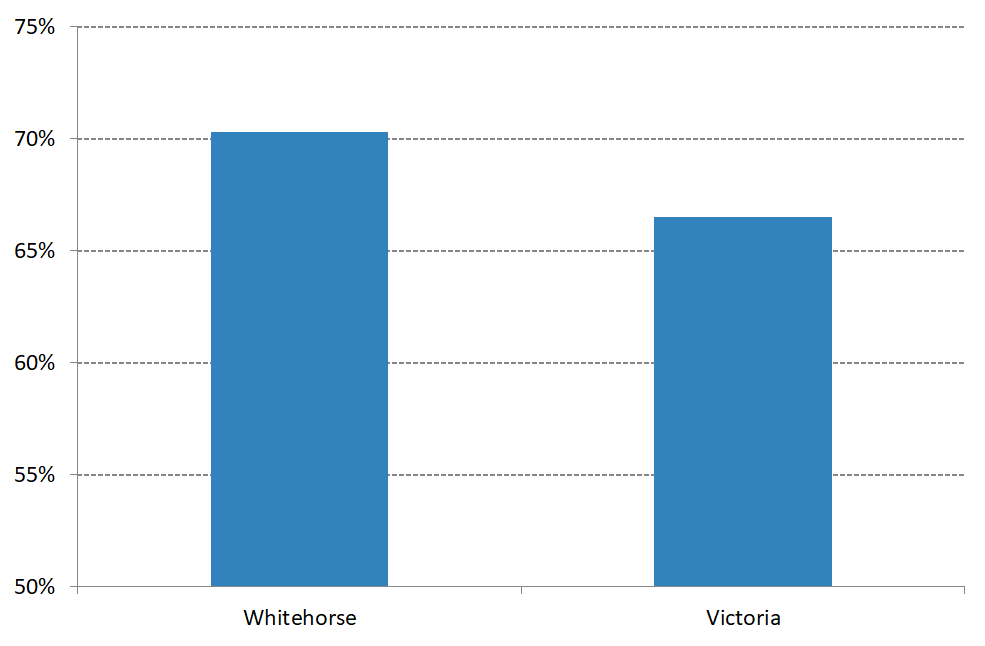Whitehorse is a diverse community, with over 150 cultures represented. This page presents statistical information on residents’ country of birth, language spoken at home and religion, based on data from the 2021 Census of Population and Housing.
Overseas Country of Birth

- More than 4 out of 10 Whitehorse residents were born overseas (41.5 per cent) and more than a third come from countries where English is not the first language (36.7 per cent).
- While the majority of residents (55.1% per cent) were born in Australia, this figure is lower compared to Greater Melbourne (59.9 per cent) and Victoria (65 per cent).
- China is the leading country of birth for the overseas born population in Whitehorse, followed by India, Malaysia, the United Kingdom, Hong Kong, Vietnam, Sri Lanka and New Zealand.
- Residents born in China make up 13 per cent of the population, an increase of 18 per cent of the population from 2016 levels (11.5 per cent).
- Between 2016 and 2021 the Indian population in Whitehorse increased by 34 per cent or 1,682 people. India is the number one country of birth for recent arrivals to Australia (i.e. people who arrived between 2016 and the Census date).
- The Greek population decreased by 4 per cent, while the Italian population decreased by 11 per cent. This is consistent with trends across Australia and can be attributed to deaths and low current migration levels replenishing these groups.
- The most common overseas countries of birth for residents aged 12-25 were China and India. The most common overseas countries of birth for residents aged 60 plus were China and the United Kingdom, followed by Greece and Italy.
- Approximately 3 out of 10 residents (29.5 per cent) living in Box Hill were born in China.
Language

- In Whitehorse the most common languages spoken at home other than English are Mandarin and Cantonese (16.2 per cent and 5.5 per cent respectively), followed by Greek (2.2 per cent) and Vietnamese (1.4 per cent).

- A total of 8.2 per cent of residents indicated in the 2021 Census that they spoke English ‘not well or not at all’. This is higher than the equivalent for Greater Melbourne and Victoria at 5.4 per cent and 4.4 per cent respectively.
- Females who speak languages other than English at home tended to be slightly less proficient in spoken English than their male counterparts. The languages for which this pattern is most evident are Cantonese and Greek. In 2021, 8.5 per cent of females who spoke Cantonese at home spoke English either ‘not well’ or ‘not at all’, compared with 7.7 per cent for males; and 2.5 per cent of females speaking Greek spoke English either ‘not well’ or ‘not at all’, compared with 1.8 per cent of males.
Religion
| Religion | 2021 | 2016 |
|---|---|---|
| No Religion | 43.7% | 37.1% |
| Catholic | 16.3% | 18.6% |
| Anglican | 5.9% | 7.7% |
| Buddhism | 5.4% | 5.0% |
| Hinduism | 3.8% | 2.7% |
| Greek Orthodox | 3.3% | 3.4% |
| Christianity, not fully described | 3.0% | 2.9% |
| Uniting Church | 2.6% | 3.6% |
| Baptist | 2.6% | 2.7% |
| Islam | 1.6% | 1.3% |
International Students
Whitehorse is home to a large number of international students attending Box Hill Institute and Deakin University as well as other tertiary and secondary institutions. In 2021, 17.3 per cent of recent overseas arrivals in the City of Whitehorse (persons who are now residents of the area, who arrived in Australia in the past 5 years, having been born overseas), were attending a university, and 7.8 per cent were attending a TAFE, compared to 13.4 per cent and 8.7 per cent respectively for Greater Melbourne.
Acceptance
Accepting and valuing cultural diversity are important for the health of individuals and the community. Respect for diversity contributes to good community cohesion, which helps people build social connections. According to the 2023 Victorian Population Health Survey, a total of 70.3 per cent of people in Whitehorse felt that multiculturalism makes life in the area better, higher than the Victorian state average of 66.5 per cent.

Links
For more information about Cultural Diversity please refer to:







